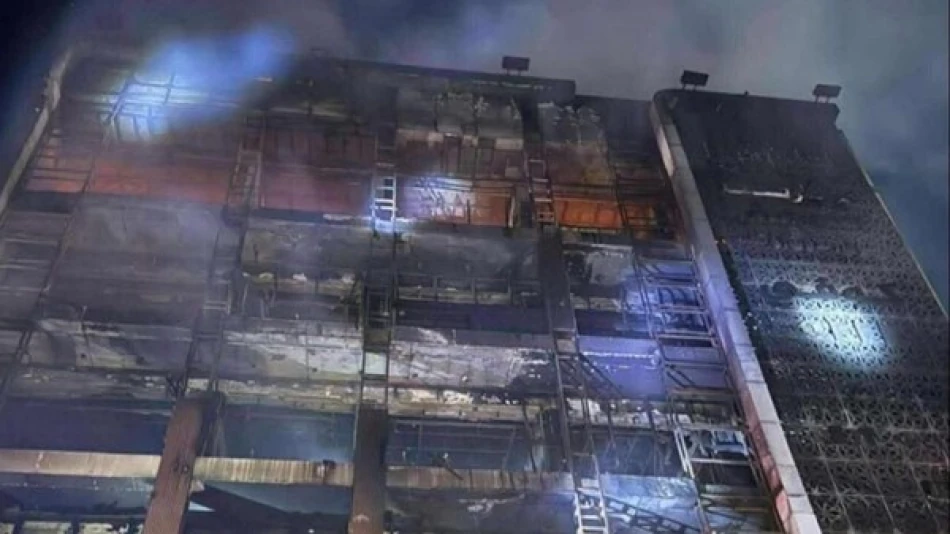
Iraq Releases Findings on Kut Fire Investigation: Unraveling the Details
Iraq Suspends 17 Officials After Mall Fire Investigation Reveals "Clear Negligence"
Iraqi authorities have suspended 17 government officials and detained three security officers following preliminary findings that "clear negligence" by public servants worsened last week's devastating shopping mall fire in Wasit province. The blaze killed over 63 people and injured more than 50 others, marking one of Iraq's deadliest civilian disasters in recent years and highlighting persistent gaps in the country's safety oversight systems.
Swift Government Response Signals Accountability Push
The high-level investigation committee, formed directly under Prime Minister Mohammed Shia al-Sudani's orders, delivered its initial conclusions within days of the Wednesday fire at the Hypermarket commercial mall. Brigadier Miqdad Miri, head of media relations at the Interior Ministry, announced the suspensions early Saturday, emphasizing that witness testimonies and field evidence pointed to systemic failures across multiple government departments.
The three detained officers include the director of tourism security, the civil defense director, and the commander of the first civil defense sector—positions directly responsible for fire prevention, emergency response, and public safety coordination.
Pattern of Infrastructure Failures Across the Region
This incident reflects broader challenges facing Middle Eastern governments in enforcing building codes and safety standards amid rapid commercial development. Iraq's infrastructure oversight has been particularly strained since 2003, with limited resources spread across reconstruction efforts and ongoing security concerns.
The swift government response contrasts sharply with past incidents where accountability measures often stalled in bureaucratic processes. Al-Sudani's administration appears determined to demonstrate decisive action, likely mindful of public frustration over repeated infrastructure failures that have claimed civilian lives.
Legal Framework and Precedent
The investigation operates under Iraq's amended 1969 Penal Code, which provides broad authority for prosecuting negligence in public duties. The legal framework allows for both administrative sanctions and criminal charges, though enforcement has historically been inconsistent.
Implications for Iraq's Governance Reform Efforts
The rapid suspension of officials sends a clear message about the current government's approach to accountability—a critical issue for Iraq's international standing and domestic stability. For investors and international partners, consistent enforcement of safety standards represents a key indicator of institutional reliability.
The promise of "complete transparency" in releasing final results also suggests an attempt to rebuild public trust in government institutions. Previous investigations have often concluded behind closed doors, leaving families of victims and the broader public without clear answers or justice.
What Comes Next
The investigation committee has pledged to continue its work until completing comprehensive findings, with results to be released publicly. The scope of suspensions—spanning multiple departments and ranks—suggests the probe may uncover systemic rather than isolated failures.
For Iraq's commercial sector, the incident raises urgent questions about building safety standards and inspection processes. Shopping malls and large commercial spaces have proliferated across Iraqi cities in recent years, often without adequate oversight of fire safety systems, evacuation procedures, and structural compliance.
The government's handling of this investigation will likely set precedents for future accountability measures and could influence public confidence in Iraq's ability to protect civilians while pursuing economic development.
Most Viewed News

 Layla Al Mansoori
Layla Al Mansoori






